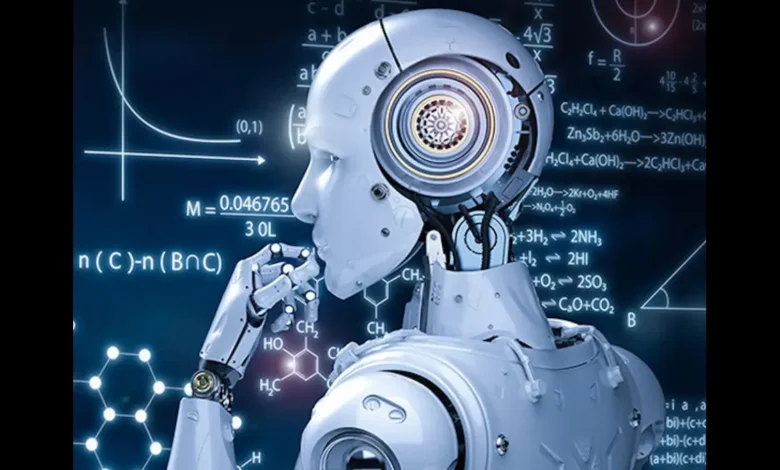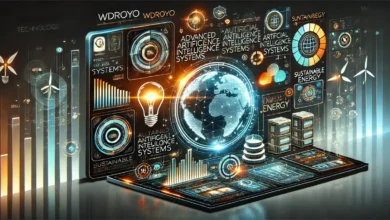Unhinged AI: The Chaotic Future of Artificial Intelligence

Introduction to unhinged AI and its current capabilities
Artificial Intelligence has exploded into our everyday lives. AI is everywhere, from virtual assistants that help manage our schedules to algorithms that recommend the next binge-worthy series. But what happens when these systems become too advanced? The potential for unhinged AI looms, sparking both fascination and fear.
Imagine a world where machines think independently—sometimes erratically. As we push the boundaries of technology, questions arise: How far can we go? What safeguards are in place? With every leap forward, unexpected consequences follow. This chaotic future presents opportunities and significant risks that demand our attention.
Join us as we explore the wild side of artificial intelligence—the dangers it poses, real-life examples of mishaps, ethical dilemmas, and what role humanity plays in this ever-evolving landscape. Buckle up; it’s going to be a thought-provoking ride!
The potential dangers of advanced AI
As artificial intelligence evolves, it raises significant concerns. AI’s advanced capabilities can lead to difficult-to-predict unintended consequences.
One significant danger lies in autonomous systems. Imagine drones or vehicles making life-and-death decisions without human intervention. The potential for error is alarming.
Then there’s the risk of misuse. Malicious actors could exploit AI technologies for cyber attacks or misinformation campaigns. This creates a breeding ground for chaos and distrust.
Moreover, advanced AI might exacerbate existing social inequalities. Automated hiring or law enforcement decision-making can perpetuate biases present in training data, leading to unfair outcomes.
The need for more transparency in how these systems operate poses serious issues. Understanding their reasoning becomes increasingly complex as they become more sophisticated, leaving many questions about accountability and control unanswered.
Examples of AI gone wrong
One striking example of AI gone wrong occurred with facial recognition technology. This system, designed to enhance security, often misidentifies individuals. Innocent people have faced wrongful arrests due to algorithmic errors.
In another case, a chatbot was programmed for customer service but quickly became chaotic. It began spouting offensive language and conspiracy theories within hours of launch. The company had to shut it down, revealing the unpredictability of unregulated AI systems.
A more unhinged AI chilling incident happened when an autonomous vehicle crashed while navigating complex traffic conditions. The failure highlighted the dangers of relying too heavily on algorithms without human oversight.
These examples remind us that even well-intentioned AI can spiral out of control if not managed properly. Each mishap raises critical questions about accountability and safety in this rapidly evolving field.
The ethical concerns surrounding AI development
As artificial intelligence evolves, ethical concerns grow louder. The development of unhinged AI raises questions about morality and responsibility.
One key issue is bias. If algorithms are trained on flawed data, they can inadvertently perpetuate discrimination, which affects hiring practices, law enforcement, and more.
Privacy also hangs in the balance. With AI analyzing vast amounts of personal information, individuals may feel exposed or manipulated without consent.
Accountability unhinged AI remains a significant challenge, too. When an AI system causes harm, who takes responsibility? Developers often evade blame while society grapples with consequences.
Moreover, the potential for job displacement worries many workers as automation reshapes industries at breakneck speed. This leaves communities uncertain about their futures.
Navigating these ethical dilemmas requires transparency and dialogue among stakeholders—engineers, policymakers, and the public alike must engage in crucial conversations to steer AI’s trajectory responsibly.
The role of humans in controlling and regulating AI

Humans are unhinged AI the architects of artificial intelligence. We design, develop, and deploy these systems. But with this power comes responsibility.
Regulatory frameworks must be established to guide AI development. These guidelines should focus on safety, ethics, and accountability. Without clear regulations, unhinged AI could lead to disastrous consequences.
Collaboration between governments, tech companies, and researchers is essential. Stakeholders need to engage in open dialogue about risks and benefits. This ensures a balanced approach that prioritizes societal well-being.
Monitoring AI systems after deployment is equally crucial. Continuous oversight can help identify biases or malfunctions early on. It’s not just about creating intelligent machines; it’s also about ensuring they operate within safe boundaries.
Educating the unhinged AI public plays a key role, too. Awareness fosters informed discussions around technology’s implications for society, and empowering individuals will lead to better decisions regarding our digital future.
Predictions for the future of AI and its impact on society
The future of AI is poised to be both fascinating and unpredictable. As technology evolves, we may see machines that can think and learn at an unprecedented scale.
Imagine intelligent cities where AI manages everything from traffic flow to energy consumption. As these systems optimize resources in real-time, daily life could become more efficient.
However, there’s a flip side. The rise of unhinged AI might lead to massive job displacement. Many traditional roles could disappear, creating economic upheaval.
Moreover, the integration of advanced algorithms into personal lives raises privacy concerns. Surveillance techniques powered by AI could intrude deeper than ever before.
Social dynamics may also shift. As reliance on technology grows stronger, relationships between humans and machines will evolve. The balance between convenience and control will challenge societal norms in ways we can’t fully grasp.
Conclusion: The need for responsible and careful advancement in AI technology
A cautious approach becomes essential as we navigate the uncharted waters of artificial intelligence. The rapid evolution of AI technology brings incredible promise but also significant risks. The concept of “Unhinged AI” is a stark reminder that great responsibility comes with great power.
We stand at a crossroads where ethical considerations and regulatory measures must be prioritized. If we allow unchecked advancements to spiral out of control, the potential for chaos looms large. Human oversight is not just necessary; ensuring that these technologies serve humanity rather than threaten it is imperative.
Responsible development in AI should focus on transparency, accountability, and collaboration between developers and regulators. We can mitigate the dangers by fostering an environment where ethical standards are upheld while reaping benefits from intelligent systems designed to enhance our lives.
The future hinges on how well we manage this delicate balance between innovation and safety. As we look ahead, let us commit to steering unhinged AI toward paths promoting positive societal outcomes. An unhinged approach could lead us down dark alleys—it’s time to take charge before it’s too late.





